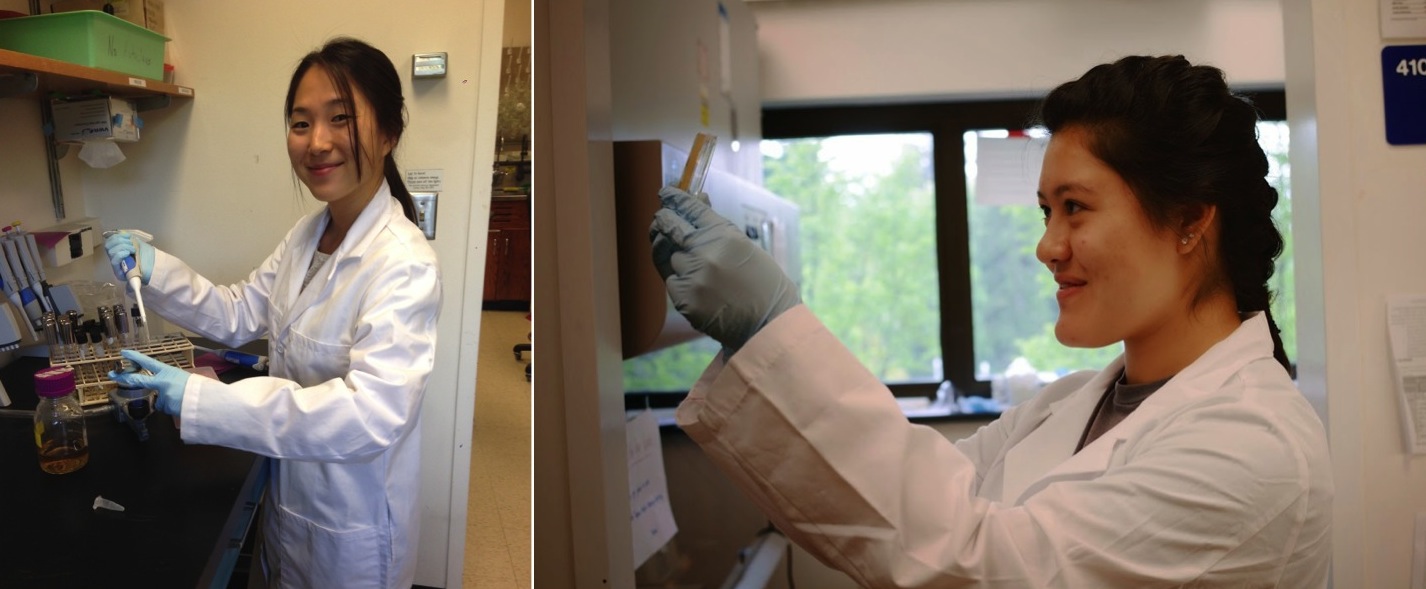Bio 482 Cooper Whang

Fig:
Research Description
Our research is dedicated to understanding the link between thermostability and genetic robustness. We evolved the virus φ6 for thermostability by doing 5 minute heat shock treatments over 100 generations. The evolved strains were then sequenced and compared to the ancestor. Common mutations were identified among these strains to find candidate mutations for thermostability. We then engineered these mutations into the ancestor to derive strains with a single point mutation difference from the ancestor. We performed a thermal kill experiment and found mutants that can withstand significantly higher thermal stress than the ancestor. Future work in this project will test whether these thermostable mutants are genetically robust. Genetic robustness is defined as the ability to accumulate mutations without a change in fitness. To determine genetic robustness in these strains, we will use error-prone polymerases to introduce random mutations into both the ancestor and mutants and compare survivability. If thermostable mutants have a higher rate of survival when new mutations are introduced, they are more genetically robust than the ancestor. Using this setup, we can test whether thermostability is a real mechanism for evolving genetic robustness. Genetic robustness may be evolutionarily beneficial because it can increase genetic variation in a population while avoiding the detrimental effects of deleterious mutations.